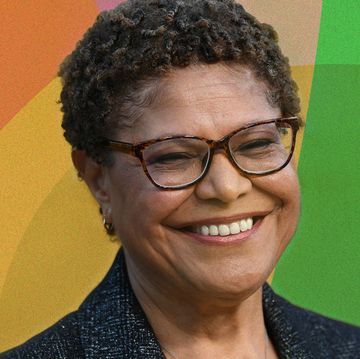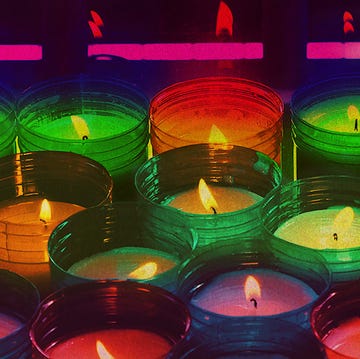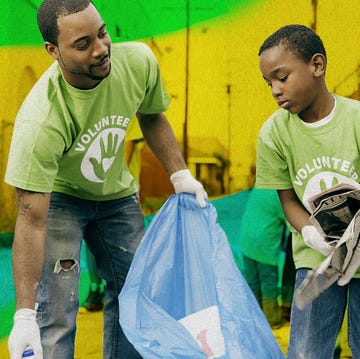Our schools do a terrible job of explaining our country’s history, and that’s doubly true when that history directly pertains to black people. So if you don’t know what Juneteenth is, let me break it down for you.
Juneteenth is the celebration of emancipation — in particular, the day that slavery was abolished in Texas on June 19, 1865. It’s also an important reminder to reaffirm our commitment to ending the long-reaching effects of slavery that are still very much around today.
Some history: Emancipation didn’t happen all at once — and news took months (sometimes years) to reach enslaved Americans. It took almost a full century after Juneteenth that the Civil Rights Act was passed, making the promise of emancipation more or less a reality.
Today, we are still fighting racist voting laws that disenfranchise black voters; mass incarceration that further exploits black labor and removes black people from the civic process; and discriminatory housing practices that make it difficult for black families to own homes, accrue equity, and pass wealth on to the next generation. Put simply, we are still in the process of ending slavery, and nowhere near ending its effects. June 19 is an absolutely perfect day to deal with our country’s racist past and make good on our commitment to fixing it.
So what do we do?
First, today and every day, acknowledge you live in a country that was built on labor stolen from black people. It’s the truth. Then, acknowledge that you have benefited from an economic system that has oppressed black people and their families. Resist the urge to "not-all-white-people" this fact, and recognize that if your white family has a little wealth to pass on, or if you’ve never lost a parent or sibling to prison, or if you’ve always felt relatively safe in your neighborhoods (and safe talking to police if you ever didn’t), you’ve benefited from a racist power structure.
Then, let’s talk reparations! We’re a hell of a long way from a meaningful federal system of reparations, but we can each individually commit to helping to mitigate the ongoing costs of slavery. They’re easy to find.
Start with mass incarceration: It’s the American institution closest to slavery that exists today. There is a beautiful rundown of organizations that need your time and dollars to keep fighting for Americans put in prison by a racist judicial system that’s been curated by "The New Jim Crow" (which, by the way, is essential reading for people who happen to be white and want to know a little bit more than our schools expected we would).
Since housing discrimination is so insidious, from urban planning cutting off black neighborhoods with highways, to realtors showing black families 18 percent fewer houses, to black Americans being denied credit, it is almost impossible to tell you where to go to help fix it. But places like Project Home are doing work at the toughest level by putting families into safe homes and making sure they can afford to stay there and grow.
Also, make sure to check out incredible, innovative spaces like Black Girls Code
and the Lower East Side Girls Club (and more here), who need your dollars and your hours to keep offering pathways out of the economic deficit this country has saddled young black girls with.
White people should recognize Juneteenth because addressing the legacy of slavery is not a black thing — it’s an everyone thing. We each have a role in perpetuating systems of oppression, whether we acknowledge it or not, so let’s take the day and make a commitment to be an active part of the solution.
Happy Juneteenth.
Get Shondaland directly in your inbox: Subscribe Today












